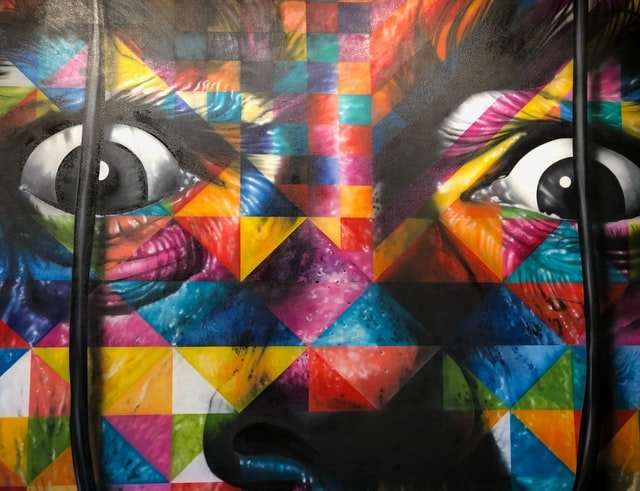As an artist, I’ve been asked all the time by beginning artists, “How do you go about getting your art into galleries and museums?” “How much should I charge for my work?” and so on.
One of the most interesting questions I’ve been asked is: “Is my art career dead in the water?” It’s a question that comes up over and over again among artists working in every art form.
Trouble is, there’s no one answer to this question. There are as many ways to make a career out of being an artist as there are artists. Each career path is unique and what works for one artist may not work for another.
It’s important to remember that your answers may be different from other people’s answers because you’re an individual. Your situation is unique and you are coming from a different place than other artists who have made a living with their art. So where do you start?
I have been asked many times lately by artists and others if my career is dead in the water. I have been asked this question so many times because I have a blog (this blog) where I talk about art, technology, and other things that are happening in the art world. This is an honest question and it’s a really important one to ask yourself if you are thinking about making art your career.
The questions I am going to answer in this post are:
You’ve heard the advice: “Do what you love, and the money will follow.” But there’s a lot more to it than that. A career in art is rarely what you expect it to be. It often takes years of hard work before you can make a living at it, and even then, things can change.
As an artist you must learn to do many things, but before you start doing them, you need to learn how to learn. The most important skill for an artist is learning how to make things. But learning how to make things is not easy. Sometimes an artist will spend months or years making one thing, only to discover that it wasn’t as good as they thought it was. That’s totally normal. It’s part of the process. If you stick with it, you’ll get better at making things until you finally hit on something that works — something that people want.
So what do I mean by “making”? Making art is different from studying art or writing criticism about art. It means taking some kind of raw material and putting it together in a way that has never been made before. When you make something — anything — you learn how other people see your work and connect with it on a level that words alone cannot reach.
You’re reading this right now because you want some career advice. And you’ve come to the right place. I’m going to tell you everything you need to know about being an artist, and then some.
First of all, let’s talk about what it means to be a professional artist. When I say professional artist, I mean someone who makes money from their art – their paintings, drawings, sculptures, etc. Someone who is recognized as an artist by others in their community. Someone who is respected for their art and what they have produced. Someone whose work is published or shown in galleries or museums, etc. It’s also really important that when people think of your name, they think of your art first (or at least with it).
I’m terrible at math and I can’t draw a straight line in ink without my hand shaking so this doesn’t apply to me!
I hear this a lot – maybe you’re thinking it too? Well, that’s terrific – you probably shouldn’t be a professional artist anyways! Drawings are easy to reproduce these days; everyone’s an artist in today’s world. If your work isn’t original or interesting enough to get noticed by others then there’s no point in even trying to make a living off of it
The main reason people don’t get hired is that they don’t have the experience and expertise for the job. It’s not something personal; it has to do with the fact that you haven’t honed your skills yet.
If you’re good enough, you will be called in for interviews. You might not get the job, or you might be passed over for someone else who is better. But if you’re confident that you are just as good as anyone else applying, then it shouldn’t matter.
You might be surprised to learn that in a very tight job market, employers can afford to be picky. They may even feel sorry for you; they know how hard it is to find a job right now. Many of them may even want to hire you but can’t justify hiring someone new when there are so many experienced candidates out there. It’s not personal; it’s just business.
If you’re good but not great, this might be a problem for you because apparently no one wants to hire someone who isn’t a superstar. But I would argue that being good isn’t enough — everyone out there is “good.” What matters is whether or not you are great.
Probably the best thing to do is to forge ahead, keep doing what you
Over on the Model Mayhem forums, there has been a flurry of activity as people are desperately trying to figure out a plan B. It’s not just here, either. At Model Mayhem, Facebook and Twitter, there are lots of people asking how they can transition their careers into something more stable and less risky.
The recent changes to Model Mayhem have made it impossible for new models to get discovered unless they already have thousands of followers and are willing to pay $20 each time they want to post a new set. This is an impossible barrier for most new models, but fortunately it’s not the only way to get discovered by photographers. There are several other ways you can still find work if you’re really motivated:
– Send your pictures and stats to every photographer in your area that you can find on Model Mayhem or Facebook or Twitter or Google+, etc., etc. Explain that you’re looking for paid work and would love to shoot with them if they have any ideas for a shoot. Some photographers will see something in your look that isn’t obvious from your photos and agree to do a shoot with you.
– Go to conventions and networking events where photographers hang out. Talk to them face-to-face and tell them why you want to be in front of the camera



